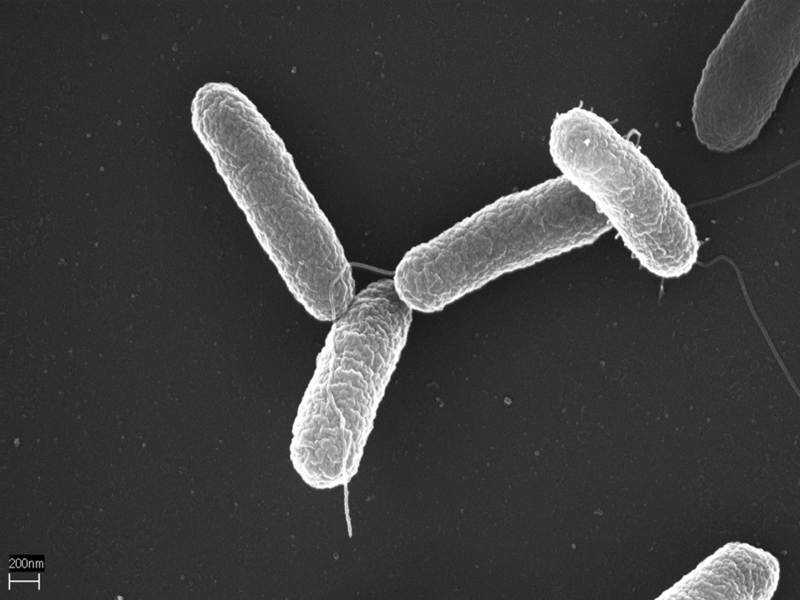Luring bacteria into an evolutionary trap to reduce treatment resistence
Date: 2.6.2021
Researchers at ETH Zurich and the University of Basel have developed a vaccine that protects animals from Salmonella. These bacteria often escape the effects of vaccination by genetically modifying their protective coat. The researchers have succeeded in manipulating this process to lure the bacteria into an evolutionary trap.
 In their study, the researchers inoculated mice with a series of slightly different vaccines against Salmonella typhimurium, and observed how the Salmonella in the animals' guts modified their genes to escape the vaccines' effects. This let the scientists identify the full spectrum of possible immune evasion mutations in Salmonella typhimurium. Subsequently, the researchers produced a combination vaccine from four Salmonella strains that covered the bacteria's full spectrum of genetic evasion options.
In their study, the researchers inoculated mice with a series of slightly different vaccines against Salmonella typhimurium, and observed how the Salmonella in the animals' guts modified their genes to escape the vaccines' effects. This let the scientists identify the full spectrum of possible immune evasion mutations in Salmonella typhimurium. Subsequently, the researchers produced a combination vaccine from four Salmonella strains that covered the bacteria's full spectrum of genetic evasion options.
A surprising immune evasion was driven by this combined vaccine, causing an important Salmonella sugar coating on the surface to atrophy. While the affected bacteria were still able to multiply in the animals' guts, they were largely unable to infect body tissues and cause disease.
This is because the sugar coating is part of the bacteria's protective coating that shields them from the host's defenses as well as from viruses that often infect and kill the bacteria. In tests on mice, the scientists were able to show that their new vaccine was more effective at preventing Salmonella infections than existing vaccines approved for use in pigs and chickens.























